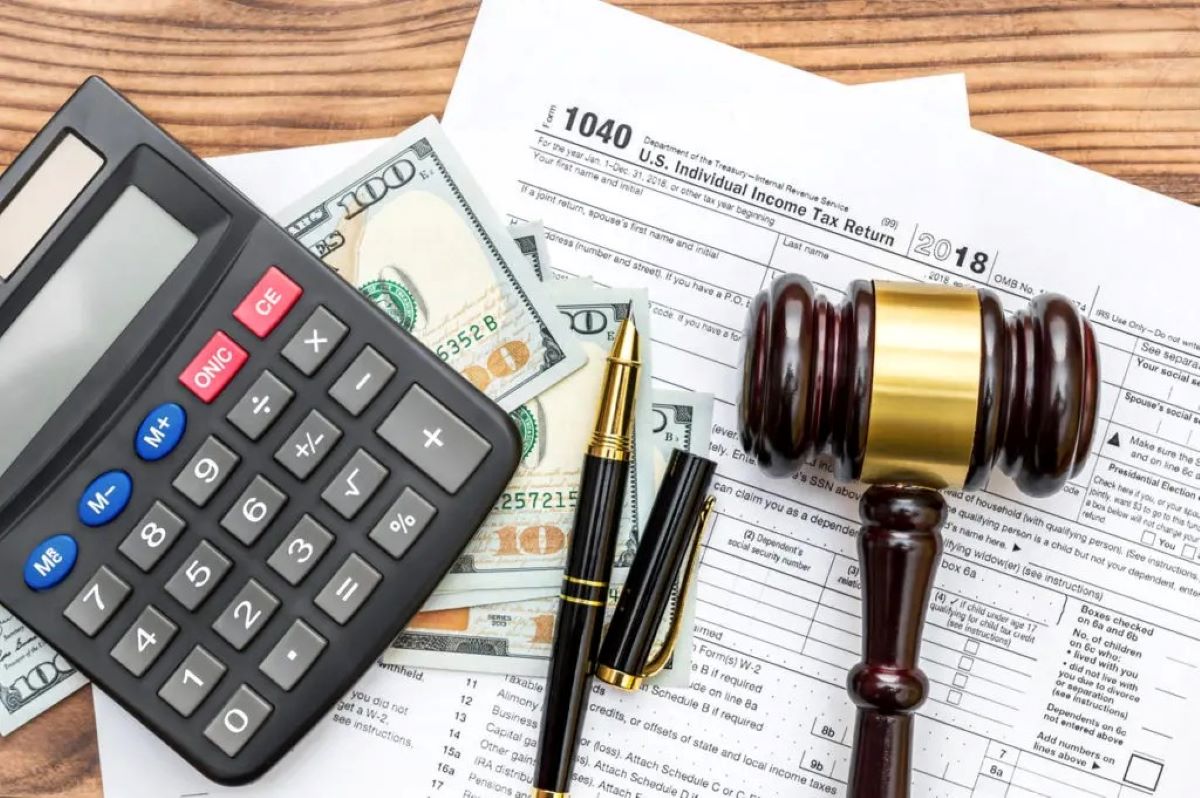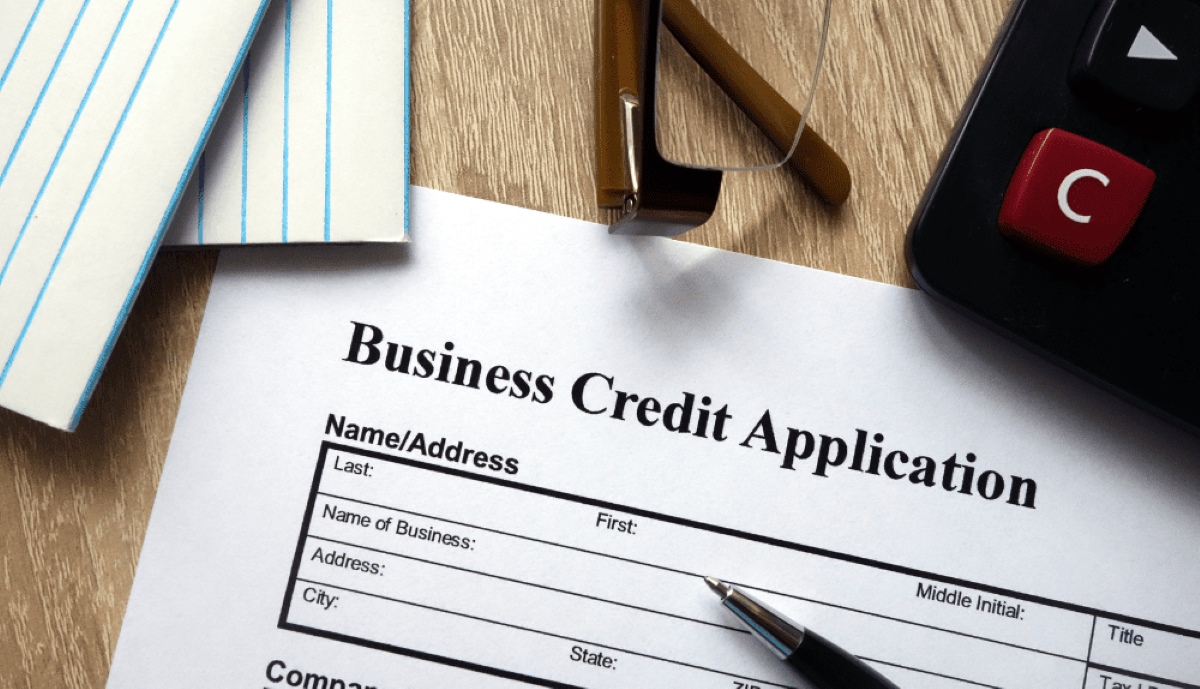

Finance
How To Sue The Credit Bureaus
Published: January 12, 2024
Learn how to sue the credit bureaus and take control of your financial future. Our comprehensive guide will show you the ins and outs of filing a lawsuit against the credit bureaus to protect your finance.
(Many of the links in this article redirect to a specific reviewed product. Your purchase of these products through affiliate links helps to generate commission for LiveWell, at no extra cost. Learn more)
Table of Contents
Introduction
Welcome to our comprehensive guide on how to sue the credit bureaus. In today’s world, where our financial lives are intertwined with credit scores and reports, it is crucial to have accurate and fair information. However, there are instances when the credit bureaus make mistakes, leading to negative consequences for consumers. If you find yourself in a situation where errors on your credit report impact your financial well-being, you have the right to take legal action against the credit bureaus.
Suing the credit bureaus may seem like a daunting task, but with the right knowledge and guidance, you can navigate the process successfully. This guide will provide you with a step-by-step approach on how to sue the credit bureaus and seek the justice you deserve.
Before diving into the details, it’s important to understand the significance of credit reports and the role of credit bureaus in shaping our financial lives. Credit bureaus, also known as credit reporting agencies, are companies that collect, maintain, and provide credit information about consumers. They gather data from various sources, such as lenders and creditors, and compile it into credit reports. These reports, in turn, are used by lenders, landlords, and employers to assess our creditworthiness and make crucial decisions regarding loan approvals, rental applications, and job offers.
While credit bureaus play a vital role in the financial ecosystem, they are not infallible. Inaccuracies, outdated information, and even identity theft can lead to errors on your credit report. These errors can have serious repercussions, potentially impacting your ability to secure loans, obtain favorable interest rates, or even land a job.
If you have already tried to dispute inaccuracies on your credit report and the credit bureaus have failed to correct them, or if you believe that the credit bureaus have violated your rights under the Fair Credit Reporting Act (FCRA), it may be time to consider filing a lawsuit.
This guide will walk you through the process of suing the credit bureaus, including understanding your rights as a consumer, gathering evidence, preparing a strong complaint letter, filing a lawsuit, appearing in court, dealing with settlement offers, and enforcing a judgment. By following these steps, you can take control of your financial future and ensure that your credit report accurately reflects your creditworthiness.
Understanding Your Rights as a Consumer
Before proceeding with a lawsuit against the credit bureaus, it’s essential to understand your rights as a consumer. The Fair Credit Reporting Act (FCRA) is a federal law that provides several protections and rights to individuals regarding their credit reports. Familiarize yourself with these rights to strengthen your case and ensure the credit bureaus adhere to their legal obligations.
Here are the key rights granted to consumers under the FCRA:
- The right to access your credit report: You have the right to obtain a free copy of your credit report from each of the major credit bureaus (Equifax, Experian, and TransUnion) once every 12 months. You can request your free credit report through the official website AnnualCreditReport.com.
- The right to dispute inaccurate information: If you find errors on your credit report, such as incorrect personal information, false accounts, or inaccurate payment history, you have the right to dispute that information with the credit bureaus.
- The right to a timely investigation: When you file a dispute, the credit bureaus are obligated to investigate the accuracy of the information within 30 days. If they fail to do so, they may be in violation of the FCRA.
- The right to have errors corrected or removed: If the credit bureaus find that the reported information is inaccurate, they must correct or remove it from your credit report. They are also required to provide you with a free updated copy of your credit report.
- The right to add a statement to your credit report: If you disagree with the outcome of a dispute investigation and the credit bureaus refuse to remove the disputed information, you have the right to add a 100-word statement to your credit report explaining your side of the story.
- The right to sue for damages: If the credit bureaus do not correct inaccurate information or fail to investigate your disputes, you may be entitled to sue for damages, including actual damages, punitive damages, and attorney fees.
Understanding your rights is crucial when dealing with the credit bureaus. It empowers you to take action and hold them accountable for any violations of the FCRA. Before proceeding with a lawsuit, it’s important to exhaust all other options, such as disputing the inaccuracies and giving the credit bureaus an opportunity to rectify the situation. If these attempts fail, you can then move forward with legal action.
Keep in mind that while the FCRA provides protections, it’s helpful to consult with an attorney who specializes in consumer rights and credit reporting. They can guide you through the process, ensure your rights are protected, and increase your chances of a successful lawsuit against the credit bureaus.
Gathering Evidence to Support Your Case
When filing a lawsuit against the credit bureaus, it’s essential to gather sufficient evidence to support your case. The strength of your evidence can significantly impact the outcome of your lawsuit. By presenting solid evidence, you increase your chances of proving the inaccuracies on your credit report and holding the credit bureaus accountable. Here are some key steps to help you gather the necessary evidence:
- Obtain copies of your credit reports: Start by obtaining copies of your credit reports from all three major credit bureaus – Equifax, Experian, and TransUnion. Review each report carefully, noting any inaccurate information that you plan to dispute or use as evidence in your lawsuit.
- Document specific inaccuracies: Make a detailed list of the specific inaccuracies you have identified on your credit reports. Ensure that you document each discrepancy with clear descriptions and any supporting documentation you may have, such as receipts, correspondence, or account statements.
- Gather supporting documents: Collect any supporting documents that validate your claims. This may include payment records, canceled checks, collection letters, or any other written evidence that proves the inaccuracies on your credit report.
- Keep a record of communication: Maintain a record of all communication between yourself and the credit bureaus. This includes copies of dispute letters or online dispute submissions, certified mail receipts, and any responses received from the credit bureaus.
- Seek statements from third parties: If your dispute involves errors related to a specific account, consider obtaining statements from third parties who can verify the inaccuracies. This could include lenders, creditors, or other individuals with knowledge of the disputed information.
- Document the impact on your financial well-being: If the inaccuracies on your credit report have resulted in financial harm, such as denial of credit or higher loan rates, gather evidence to demonstrate the adverse impact on your financial well-being. This could include loan denial letters, higher interest rate offers, or credit monitoring service reports.
Remember, the goal is to gather as much evidence as possible to support your claims against the credit bureaus. Document everything meticulously and organize your evidence in a clear and systematic manner. This will not only help strengthen your case but also provide a clear overview of the inaccuracies and the harm they have caused.
After gathering your evidence, it’s important to prepare a strong complaint letter to the credit bureaus, outlining the inaccuracies and demanding corrective action. In the next section, we will discuss the process of drafting an effective complaint letter as part of your lawsuit against the credit bureaus.
Preparing a Strong Complaint Letter
One of the crucial steps in filing a lawsuit against the credit bureaus is preparing a strong complaint letter. This letter serves as formal communication and outlines the inaccuracies on your credit report, the harm they have caused you, and your demand for corrective action. A well-crafted complaint letter can not only convey your grievances effectively but also demonstrate your seriousness in pursuing legal action. Here are some key tips to help you prepare a strong complaint letter:
- Address the letter to the appropriate contact: Begin by addressing the complaint letter to the correct department or individual at the credit bureaus. Ensure that you have the accurate mailing address or email address for the credit bureau’s dispute department.
- Reference your legal rights: Start the letter by referencing your rights under the Fair Credit Reporting Act (FCRA), such as the right to dispute inaccuracies and the right to have accurate information on your credit report.
- Clearly state the inaccuracies: Clearly and concisely explain the specific inaccuracies you have identified on your credit report. Provide account details, dates, and any other pertinent information that highlights the errors.
- Attach supporting documentation: Include copies of any supporting documentation that substantiates your claims. This may include receipts, statements, or letters from third parties that confirm the inaccuracies.
- Highlight the impact on your financial well-being: Detail the adverse consequences you have faced as a result of the inaccuracies, such as being denied credit, receiving higher interest rates, or being unable to secure employment. Explain how these actions have detrimentally affected your financial well-being.
- Demand corrective action: Clearly state your demand for the credit bureaus to correct the inaccuracies on your credit report. Specify a reasonable timeframe for them to update your report and provide you with a free updated copy.
- Indicate your intention to pursue legal action: Express your intent to pursue legal action if the credit bureaus fail to comply with your demands. This demonstrates your seriousness in seeking justice for the harm caused by the inaccuracies.
- Keep a copy and proof of delivery: Ensure that you retain a copy of the complaint letter for your records. If sending the letter via postal mail, use certified mail with return receipt requested to have proof of delivery.
By carefully constructing your complaint letter and providing compelling evidence, you increase the chances of the credit bureaus taking your claims seriously. Remember, the objective of the complaint letter is to initiate a response from the credit bureaus and potentially resolve the issue without resorting to a lawsuit. However, if the credit bureaus do not respond or fail to address the inaccuracies, you may need to proceed to the next step – filing a lawsuit against the credit bureaus.
Filing a Lawsuit against the Credit Bureaus
If the credit bureaus do not rectify the inaccuracies on your credit report or fail to respond to your complaint letter, it may be necessary to file a lawsuit against them. Filing a lawsuit is a legal process that requires careful preparation and adherence to proper procedures. Here are the key steps to follow when filing a lawsuit against the credit bureaus:
- Consult with an attorney: Consider consulting with an attorney who specializes in consumer rights and credit reporting. They can provide valuable advice on the strength of your case, potential legal strategies, and the specific requirements for filing a lawsuit in your jurisdiction.
- Research your state’s statutes and limitations: Familiarize yourself with the statutes and limitations that apply to your case in your state. Each state has different laws regarding the timeframe within which you can file a lawsuit, so it’s important to understand the deadlines and adhere to them.
- Determine the appropriate jurisdiction: Identify the correct jurisdiction for filing your lawsuit. This typically depends on where the credit bureau’s primary business operations are located or where you reside. Your attorney can guide you on which court to file your lawsuit in.
- Prepare the necessary paperwork: Work with your attorney to prepare the required legal documents, including the complaint, summons, and any supporting exhibits or affidavits. These documents will outline your case and the relief you are seeking from the court.
- Pay the filing fee: Be prepared to pay the filing fee associated with initiating a lawsuit. The amount varies depending on the jurisdiction and the nature of your case.
- Serve the credit bureaus: Ensure that the credit bureaus are properly served with the lawsuit documents. This is usually done by a process server or a sheriff’s officer who delivers the documents to the credit bureau’s registered agents or legal representatives.
- Respond to any counterclaims or motions: The credit bureaus may respond to your lawsuit with counterclaims or file motions to dismiss or transfer the case. Your attorney will guide you on how to respond to these legal actions effectively.
- Prepare for litigation: Work closely with your attorney to prepare your case for litigation. This may involve gathering additional evidence, conducting depositions, and engaging in settlement negotiations, if appropriate.
- Appear in court: Attend all required court hearings and follow the instructions of your attorney regarding courtroom procedures and etiquette. Present your case confidently and provide any necessary testimony or evidence to support your claims.
Filing a lawsuit against the credit bureaus is a complex process that requires legal expertise. Therefore, it’s crucial to consult with an attorney who can guide you through the entire process and ensure that your rights are protected. With the right legal representation, you can present a compelling case and seek the justice and compensation you deserve for the inaccuracies on your credit report.
Appearing in Court and Presenting Your Case
When filing a lawsuit against the credit bureaus, one of the crucial moments in the legal process is appearing in court and presenting your case. This is an opportunity to present your evidence, argue your position, and advocate for your rights. Here are some key points to keep in mind when appearing in court:
- Be prepared: Thoroughly review your case with your attorney and be familiar with all the facts, evidence, and legal arguments. Prepare any necessary documents or exhibits that will be presented during the court hearing.
- Dress appropriately: Dress in a professional and respectful manner when appearing in court. This demonstrates your seriousness and respect for the legal process.
- Arrive early: Make sure to arrive at the courthouse well ahead of the scheduled time. This allows you to familiarize yourself with the surroundings and reduces any unnecessary stress or anxiety.
- Follow courtroom etiquette: Observe and adhere to courtroom etiquette, including standing when the judge enters or exits the courtroom, addressing the judge respectfully, and not interrupting others while they are speaking.
- Stay composed and confident: Maintain your composure during the court proceedings and present your case confidently. Speak clearly and concisely when addressing the judge or responding to questions.
- Present your evidence: Present the evidence you have gathered to support your claims against the credit bureaus. This may include documents, records, or witness testimonies. As you present each piece of evidence, explain its relevance and how it supports your case.
- Argue your position: Clearly and persuasively articulate your legal arguments and explain why you believe the credit bureaus are liable for the inaccuracies on your credit report. Refer to relevant laws and precedents that support your position.
- Answer questions truthfully: If the judge or opposing counsel asks you questions, answer truthfully and to the best of your knowledge. If you are unsure about something, it’s acceptable to say that you do not know or cannot recall.
- Respect the judge’s rulings: Accept and respect the judge’s decisions during the court proceedings. Even if the ruling goes against your favor, it’s important to remain professional and composed.
- Consider settlement negotiations: During the court process, there may be opportunities for settlement negotiations or mediation. Consult with your attorney to determine whether pursuing a settlement is in your best interest.
Remember, appearing in court can be a nerve-wracking experience, but with thorough preparation and the guidance of your attorney, you can present your case effectively. Stay focused, confident, and respectful throughout the court proceedings, and trust in the legal process to provide a fair resolution to your lawsuit against the credit bureaus.
Dealing with Settlement Offers and Negotiations
As you pursue a lawsuit against the credit bureaus, it’s important to be aware that settlement offers and negotiations may arise during the legal process. Settlements can provide a means for resolving the dispute outside of court, potentially saving you time, money, and the stress of a trial. Here are some key considerations when dealing with settlement offers and negotiations:
- Consult with your attorney: Seek guidance from your attorney when evaluating settlement offers. They can provide insights into the strengths and weaknesses of your case and help you determine whether a settlement is fair and reasonable.
- Assess the pros and cons: Carefully weigh the potential benefits and drawbacks of accepting a settlement offer. Consider factors such as the amount of compensation offered, the impact on your credit report, and the likelihood of success if the case proceeds to trial.
- Consider your goals: Evaluate your desired outcome and whether a settlement aligns with your objectives. While compensation is one aspect, you may also prioritize having the inaccuracies corrected on your credit report or seeking punitive damages.
- Negotiate from a position of strength: If you receive a settlement offer, assess the merits of your case and the strength of your evidence. This information can provide leverage for negotiating a better settlement that meets your needs.
- Document everything: Keep thorough records of all settlement negotiations, including any offers, counteroffers, and correspondence exchanged between the parties. This documentation can be invaluable if disputes arise in the future.
- Consider the cost-benefit ratio: Evaluate the cost of continuing with the lawsuit versus the potential value of a settlement. Consider factors such as legal fees, time spent on the case, and the emotional toll of ongoing litigation.
- Understand potential limitations: Be aware that settlements often include confidentiality clauses or agreements not to pursue future legal action against the credit bureaus. Ensure that you fully understand the terms and implications of any settlement agreement before accepting.
- Seek legal advice: It’s crucial to consult with your attorney throughout the negotiation process. They can advocate on your behalf, provide strategic advice, and ensure that your rights and interests are protected.
Ultimately, the decision to accept a settlement offer or proceed with a trial is a personal one. Consider the unique circumstances of your case, consult with your attorney, and carefully weigh the potential outcomes. Remember that the goal is to achieve a fair resolution that rectifies the inaccuracies on your credit report and provides appropriate compensation for any harm caused.
Enforcing the Judgment
After successfully obtaining a judgment in your lawsuit against the credit bureaus, the next important step is to enforce that judgment. Enforcement ensures that the credit bureaus comply with the court’s ordered actions and that you receive any compensation or remedies awarded to you. Here are some key considerations when enforcing a judgment:
- Review the judgment: Carefully review the judgment to understand the specific actions the credit bureaus are required to take and any monetary awards granted. Ensure that you have a clear understanding of what is expected.
- Monitor compliance: Keep track of whether the credit bureaus comply with the judgment within the designated timeframe. This may involve checking your credit report, verifying corrections, or confirming the receipt of monetary compensation.
- Communicate with the credit bureaus: If the credit bureaus fail to comply with the judgment, send a formal written notice reminding them of their obligations. Provide specific details and reference the court’s ruling to ensure your message is clear.
- Consider legal assistance: If the credit bureaus continue to ignore the judgment or refuse to comply, consult with your attorney to explore possible legal actions to enforce the judgment. They can guide you on the available options and represent your interests in subsequent court proceedings.
- Seek assistance from the court: In some cases, you may need to return to court to seek assistance in enforcing the judgment. This can include requesting a contempt hearing or filing a motion for a writ of execution to seize assets or garnish wages.
- Document non-compliance: Keep meticulous records of any instances where the credit bureaus fail to comply with the judgment. Document any correspondence, communications, or evidence of non-compliance as this can be valuable in future legal actions.
- Consult a collection agency or professional: If the judgment includes a monetary award and the credit bureaus refuse to pay, you may consider enlisting the help of a collection agency or professional to assist you in recovering the owed amount. They have the expertise to navigate the collection process effectively.
- Be patient, but persistent: Enforcing a judgment can be a lengthy process. Be prepared for delays and frustrating obstacles, but remain persistent in ensuring that the credit bureaus comply with their obligations.
Enforcing a judgment against the credit bureaus requires vigilance and proactive measures. By staying informed about your rights, maintaining thorough documentation, and seeking legal assistance when necessary, you can increase the likelihood of successfully enforcing the judgment and obtaining the resolution you deserve.
Conclusion
Suing the credit bureaus is a recourse available to consumers who have been adversely affected by inaccuracies on their credit reports. By understanding your rights as a consumer, gathering evidence, preparing a strong complaint letter, and pursuing a lawsuit, you can take a proactive stance in seeking justice and rectifying any harm caused by these errors.
Throughout this comprehensive guide, we have discussed the rights granted under the Fair Credit Reporting Act (FCRA), the importance of gathering evidence, the preparation of a powerful complaint letter, the process of filing a lawsuit, appearing in court, and dealing with settlement offers. Additionally, we explored the enforcement of judgments to ensure that the credit bureaus comply with the court’s orders.
While the process of suing the credit bureaus may seem complex and daunting, obtaining legal assistance from an attorney who specializes in credit reporting can significantly enhance your chances of success. They can provide guidance, represent your interests, and navigate the intricacies of the legal system on your behalf.
Remember, your credit report plays a crucial role in your financial well-being, and inaccuracies can have far-reaching consequences. By taking action and holding the credit bureaus accountable, you are not only protecting your rights but also contributing to a fair and accurate credit reporting system.
However, it’s important to note that the information provided in this guide should not be considered legal advice. It is always recommended to consult with an attorney to understand the specific laws and regulations that apply to your situation.
By arming yourself with knowledge, evidence, and the support of legal professionals, you can navigate the process of suing the credit bureaus with confidence, striving for a credit report that accurately reflects your creditworthiness and securing a better financial future.














